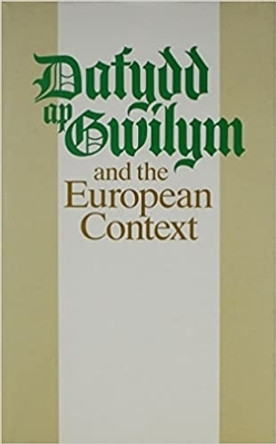One of the great innovators of medieval literature, Dafydd ap Gwilym's poetic voice is as distinctive and resonant as those of his more celebrated contemporaries Chaucer and Boccaccio. This book - the first major study of the largely submerged popular verse tradition of medieval Wales and its likely enriching effect on the repertoire of the professional poets - examines Dafydd's use both of the native popular verse tradition and of the persuasive convention of northern French verse to forge a new kind of poetry for a new age. Composing in the wake of the Edwardian conquest of Wales, Dafydd (fl. c. 1330-70) and a few kindred spirits sought to adapt and revitalize an already sophisticated bardic culture by expanding its subject matter to include a surprising variety of entertainment as well as formal praise. Huw M. Edwards sets out the first detailed comparison of Dafydd's verse with the highly influential poetry of northern France, in terms of themes, motifs and poetic genres since the publication of the authentic canon in 1952. The poet's bold and often playful handling of borrowed conventions will be of interest to all students of medieval poetry.
ReviewsThe first major study of the largely submerged popular verse tradition of medieval Wales. * Cardiff Western Mail *
This book gives mature and comprehensive discussion to outstanding questions concerning the genesis of Dafydd ap Gwilym's poetic genius. Huw Edwards's study will long remain essential to future investigations of this subject ... Huw Edwards's book makes a substantial contribution to a currently on-going discussion. It is to be hoped that this fine study, with its accurate English translations, will go some way towards breaching the language barrier, and will win for Dafydd some part of the recognition to which the distinction of his greatest poetry has long entitled him. * Rachel Bromwich, Cambrian Medieval Celtic Studies 33 (Summer 1997) *
Book InformationISBN 9780198159018
Author Huw M. EdwardsFormat Hardback
Page Count 320
Imprint Clarendon PressPublisher Oxford University Press
Weight(grams) 1g
Dimensions(mm) 227mm * 145mm * 24mm






